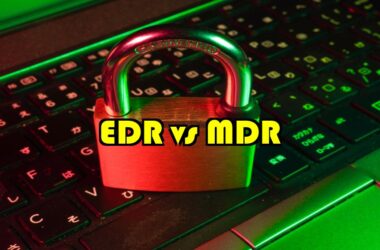Enterprise cybersecurity is a field that includes a broad range of practices and strategies designed to protect an organization’s digital assets. Enterprise Cybersecurity is beyond simple antiviruses and firewalls; it requires a deep understanding of potential threats and vulnerabilities. In this guide, we will explore the intricacies of securing your enterprise against cyber threats.
The Importance of Enterprise Cybersecurity
Enterprise cybersecurity plays a great role in the modern business world. With the increasing reliance on technology and digital data, the need for robust security measures has never been greater. It ensures the confidentiality, integrity, and availability of your digital assets, increasing trust in your clients, partners, and stakeholders.
Understanding the enterprise cybersecurity:
To understand enterprise cybersecurity effectively, you must first understand the landscape and its key components. Let’s explore the critical aspects that demand your attention.
Threat and Risk Assessment
Understanding the threat landscape is essential. Threat actors, ranging from hackers to malicious software, constantly seek to exploit vulnerabilities. Conducting a comprehensive risk assessment helps identify potential weak points in your security.
Compliance and Regulation
Regulations like GDPR and HIPAA have made cybersecurity compliance a legal requirement in many industries. Staying compliant not only mitigates legal risks but also demonstrates your commitment to safeguarding sensitive data.
Security Frameworks
Frameworks like NIST and ISO 27001 provide a structured approach to cybersecurity. Implementing these frameworks can streamline your security efforts, ensuring a comprehensive defense.
Building a Strong Cybersecurity Strategy:
With a clear understanding of the landscape, it’s time to develop a strong cybersecurity strategy. This involves several key steps and considerations.
Data Classification
Not all data is created equal. Classifying data based on its sensitivity is fundamental in creating a tailored security approach. This ensures that the most critical information receives the highest level of protection.
Access Control
Limiting access to data and systems is a core principle of enterprise cybersecurity. Implementing robust access controls, such as multi-factor authentication, minimizes the risk of unauthorized access.
Employee Training
Your employees can be your greatest asset or your greatest vulnerability. Training your staff in cybersecurity best practices is crucial. A well-informed team can recognize and mitigate potential threats.
Incident Response Plan
No system is impervious to breaches. Having a well-defined incident response plan in place is critical. It allows for a swift and effective reaction in the event of a security incident, minimizing damage.
FAQs
What is enterprise cybersecurity?
Enterprise cybersecurity includes protecting the data, sensitive information, and digital assets of an organization. Companies of all sizes should have strong enterprise cybersecurity. It is not only meant for big enterprises
What is the difference between enterprise security and cybersecurity?
Cybersecurity refers to tools and tactics that are used to protect a digital device or data. Enterprise cybersecurity as it’s name suggest is a type of it. It is meant for providing digital protection or cybersecurity to businesses with a relatively big network of interconnected devices.
What is enterprise security strategy?
Enterprise security strategy is like plan for protecting valuable data, systems, and people from all kinds of threats, like hackers, viruses etc. This involves making rules, controlling the level of access someone can achieve, and using tools like firewalls and encryption maintain security.
What is the difference between consumer and enterprise cybersecurity?
Consumer cybersecurity means protecting personal devices and data from online threats. It includes individual-level practices such as using antivirus and strong passwords. While, enterprise cybersecurity is deals with protecting large organizations, devices, networks, sensitive data and intellectual property. It includes measures like advanced firewalls, intrusion detection systems, encryption, security policies, employee training, and compliance with industry regulations. Enterprise cybersecurity deals with the risks associated with running an organization.
Conclusion
In this era of digital threats, enterprise cybersecurity is not an option—it’s a necessity. By understanding the landscape, creating a good strategy, and staying informed about emerging threats, you can protect your enterprise and build trust in your cybersecurity measures. Remember, in the world of cybersecurity, the best defense is a proactive one.
Also Read : PHP Intrusion Detection System: Protecting Your Web Apps











